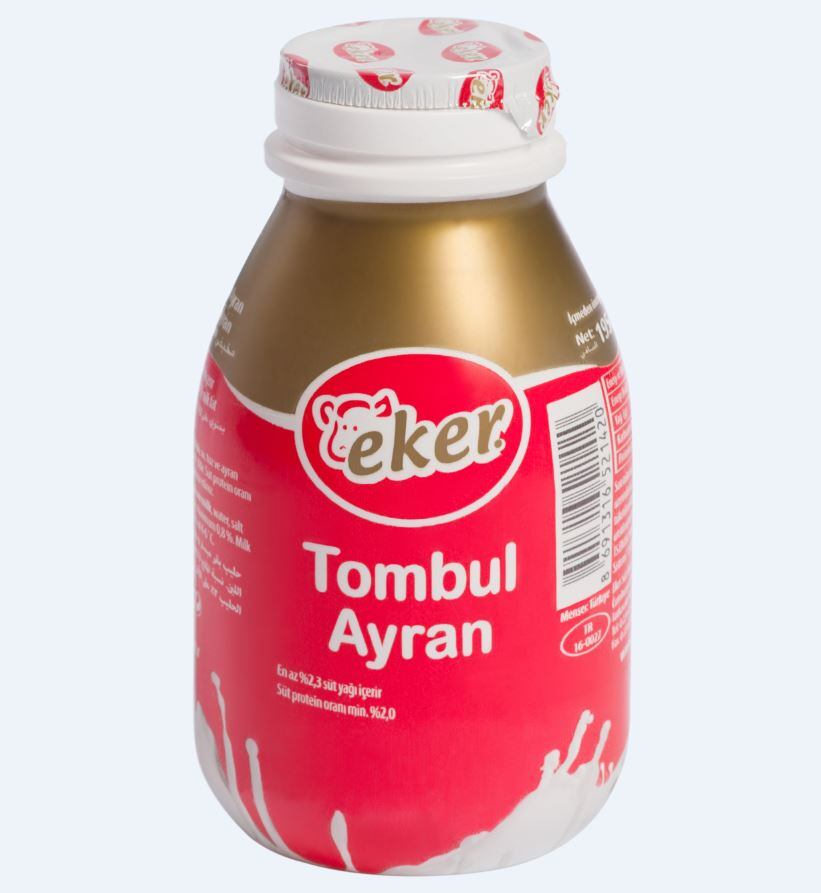The first pre-printed bottle for a yoghurt drink was launched with Eker Ayran brand in Turkey this month.
Smallest footprint for on-site bottle manufacturing

Other applications include standard, squeezable or microwavable bottles, from 100ml up to 500ml and pasteurized milks, drinking yogurts, probiotics, ESL dairy drinks, sterilized milks and UHT flavored milks.
Virginie Cormier, sales and marketing, Europe Middle East Africa and CIS (Commonwealth of Independent States), Serac, told DairyReporter, its Agami thermoforming machines are already successful in the drinking yogurt market producing bottles from PS or PP reels.
“The technical challenges of this new development were to define the features required for the PP sheet as well as for the printing inks and to provide perfect positioning of the printed reel together with precise advance rate control,” she said.
For the Eker application, Serac installed a set of sensors and cameras on it Agami machines to coincide with its machine settings with minimum waste, and check the PP sheet is at the right place for the next stroke during production.
“With this development Serac offers the smallest footprint ever for on-site bottle manufacturing, using a vertical thermoforming process and requiring no labeller or sleeve applicator,” added Cormier.
She said the main benefits are; the bottles are cost efficient: economical on-site manufacturing equipment with low energy consumption; low plastic weight per bottle ; possibility of producing bottles out of pre-printed plastic sheets (no sleeve required).
Space saving: With the vertical process bottles go directly to the filling machine (no storage tanks and unscramblers are needed).
Various design possibilities
The machine is easy to operate: easy to shut down and restart and requires very few plastic processing skills and it is versatile: PP or PS as raw material with various design possibilities, shapes and appearances; standard or calibrated necks.
According to Cormier, three advanced Agami machines have already been sold in the US and Europe for PP thermoforming and it has seen ‘a real interest from the dairy market for on-site bottles production’.
“This latest development illustrates Serac’s ability to offer innovative packaging and global support to customers,” she said.
Serac launched its Agami machine using tubular thermoforming technology to produce bottles from plastic rolls last year.
The machine was originally designed to process polystyrene, a material used in dairies for the production of yogurts in thermoformed cup (Form-Fill-Seal technology). Polystyrene rolls can be used for producing either cups or bottles, allowing manufacturers to take advantage of a single supply source.
The innovation lies in the vertical thermoforming process that first forms the plastic sheet into a tube before heating and blowing the bottle into a mold. As a result, bottles are not limited to large necks and small heights but can be made into the round designs.
The bottles also show a better resistance to vertical compression than those produced using flat thermoforming technology.
Producing bottles from material in rolls of plastic also saves throughout the supply chain, from manufacturing to transport to storage.
